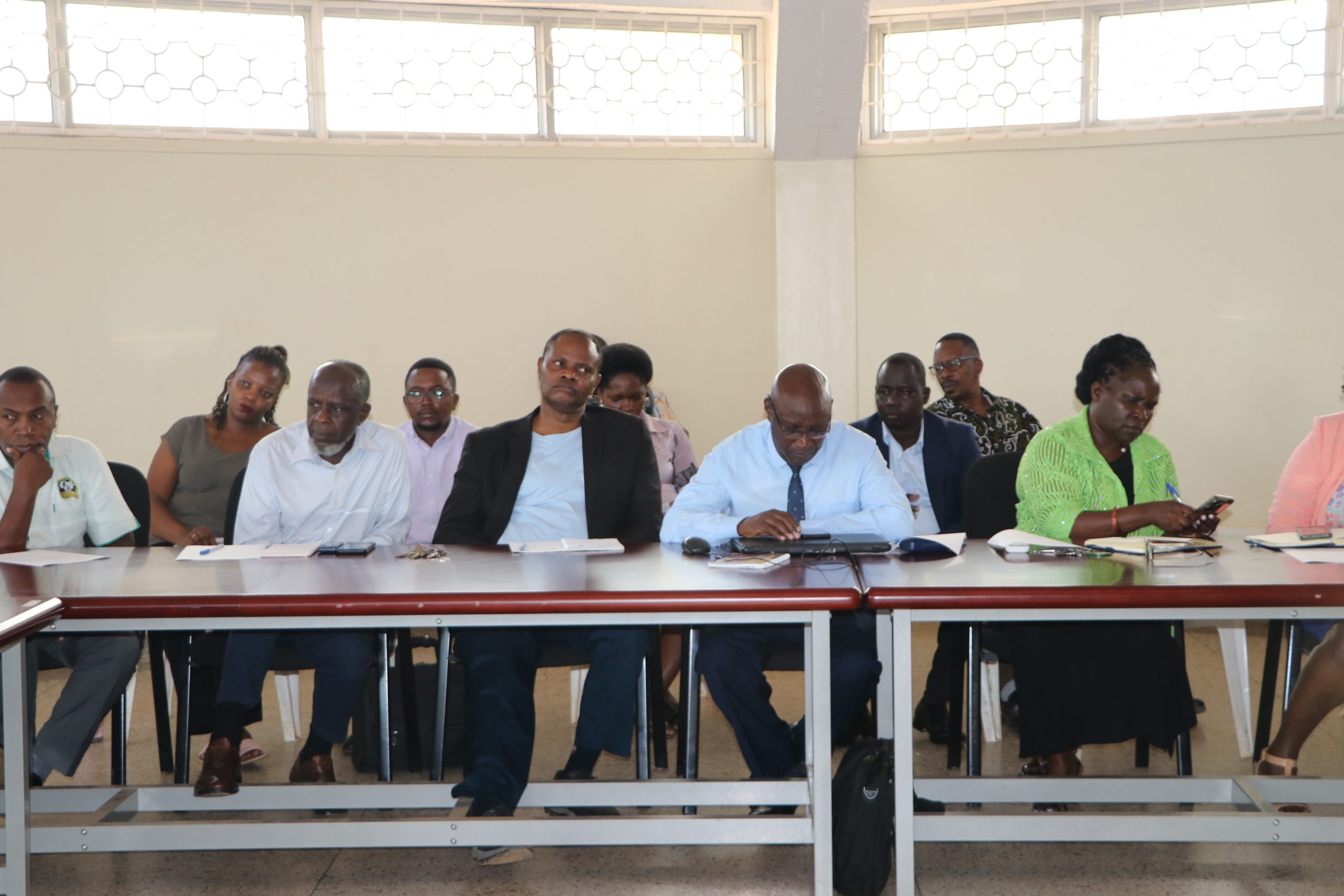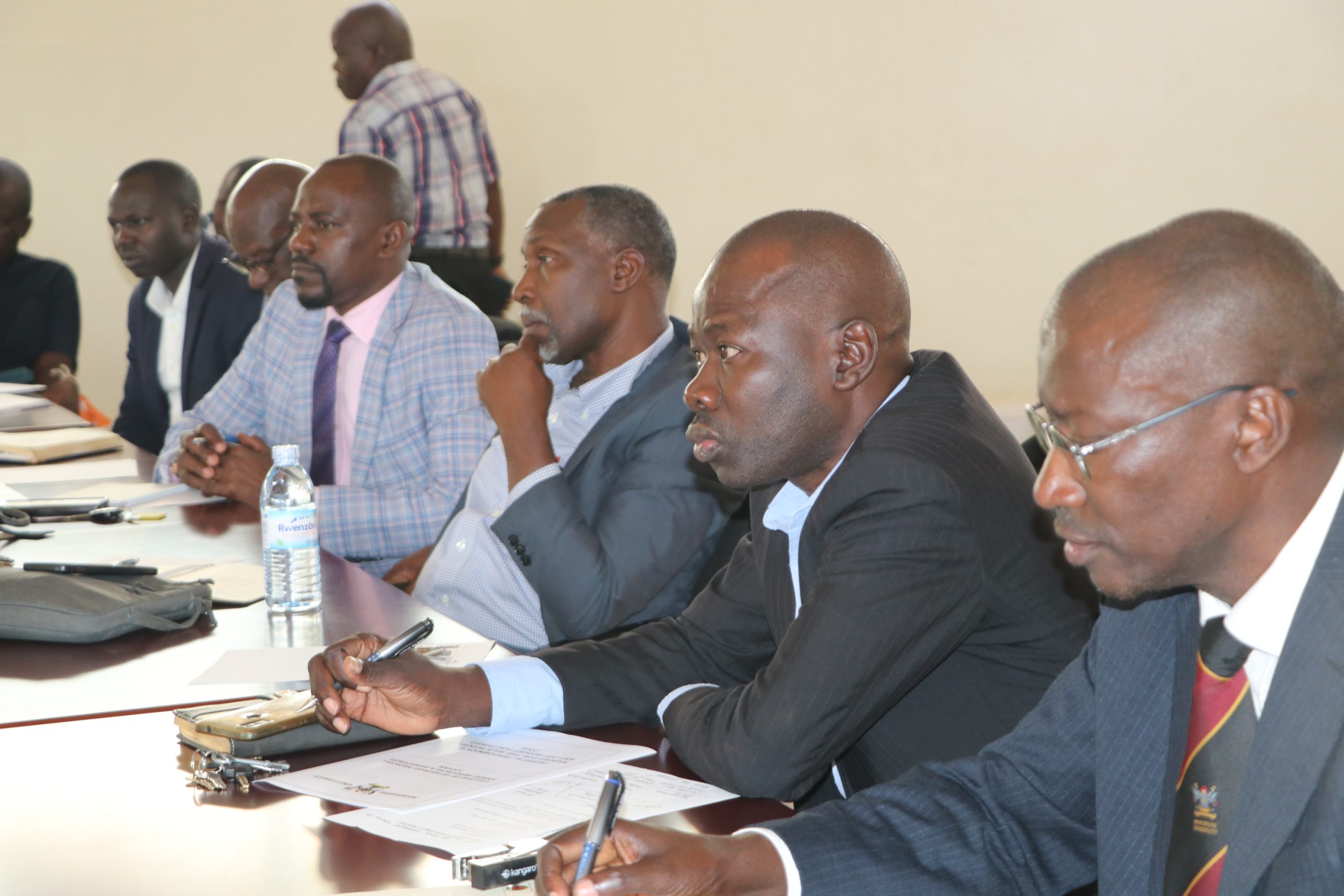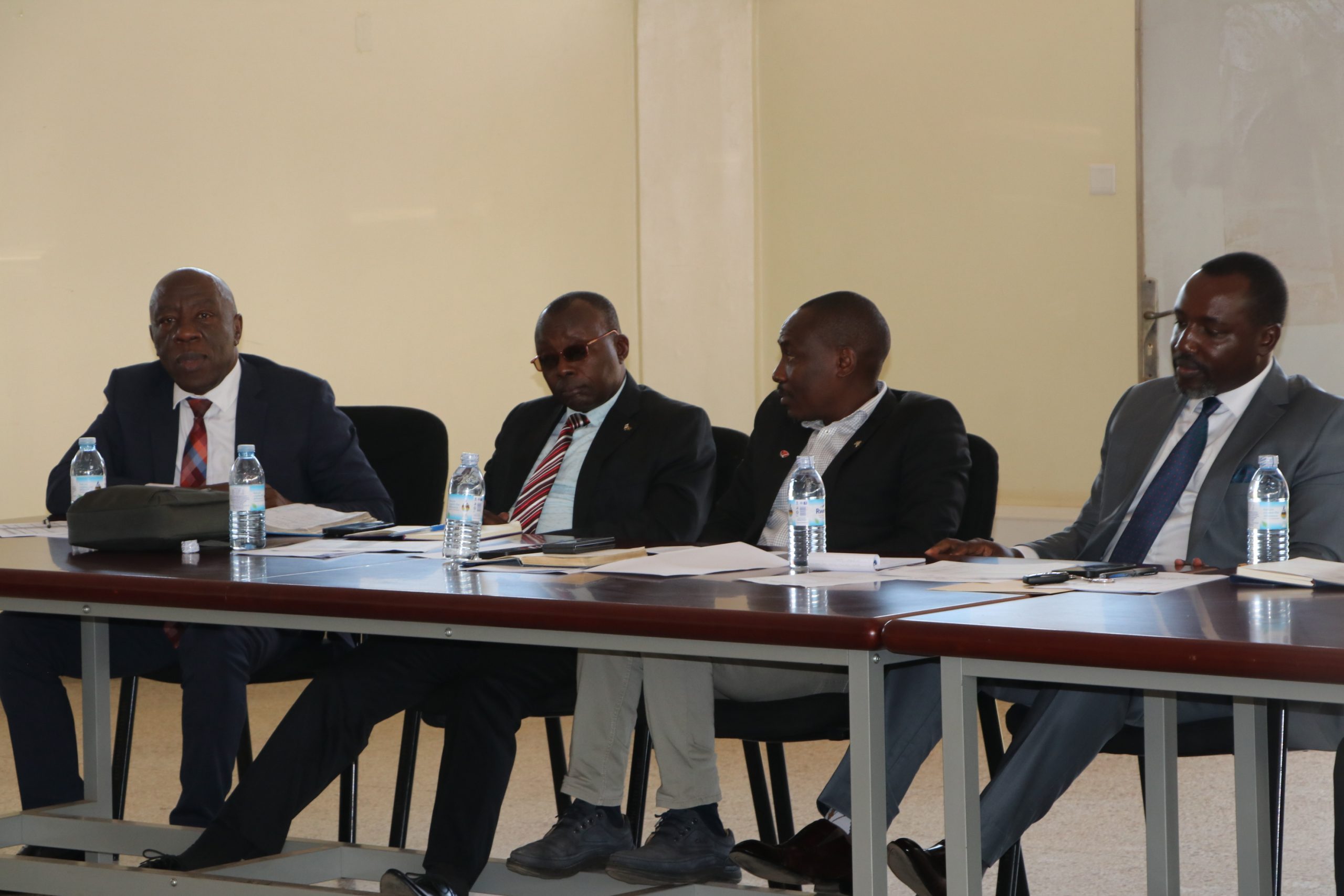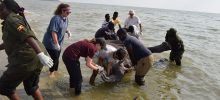FPAIC calls for collective responsibility in resource allocation and utilization at CoVAB
Makerere University Finance Planning, Administration, and Investment Committee (FPAIC) led by Mr. Bruce Kabaasa conducted an inspection visit to the College of Veterinary Medicine, Animal Resources, and Biosecurity as part of their university-wide tour on August 27th, 2024. The interface was part of the evaluation of budget execution for the 2023/2024 financial year.
While at CoVAB, the committee interacted with the management and staff of the college led by the Principal, Prof. Frank N. Mwiine, including the Deans of the two Schools, Heads of Departments, Principal Investigators of several projects, at the meeting convened in the CEBIGH conference hall.
Mr. Bruce Kabaasa, who was in the company of the Deputy Vice Chancellor of Finance and Administration Prof. Henry Alinaitwe, and other members of the committee noted that the university was moving towards denying researchers grants that do not respond to the needs of the university or the college. ‘Those running grants try to ensure the project activities have a relationship with the host discipline for instance by improving the lab equipment to be used in teaching and learning. The center cannot continue considering issues of sanitation yet we have some overheads accruing from some projects in the units, he said, adding that the colleges needed to operate as a human body, where what happens in one area is felt everywhere with the principal on top of the game, and involving all stakeholders who must take a keen interest in what is going on.

A section of CoVAB staff that attended the meeting
The FPAIC’s visit to CoVAB was part of its broader mandate to ensure financial accountability, effective planning, and proper administration within the university. The discussions that followed a presentation on the budgetary allocations of the year 2023/24 focused on the utilization of funds across various schools and departments. The meeting also reviewed the performance report for the main and off-budget expenditures, highlighting key achievements, compliance issues, challenges, and proposed solutions.
Bruce Kabaasa in his remarks emphasized the need for the college to ensure that the Grants received follow the laid down structure of the institution to benefit the ongoing teaching and learning activities. He cautioned the college that funding next year was likely to be limited hence the need to use all available resources cautiously. Regarding requests for extra staff, he said there was no way the university was going to give extra staff without establishing what those on the ground were doing. He informed the meeting that the university was to provide some funding to improve the state of labs CAES and CoVAB.
The team noted with concern that despite the resources allocated to improve E-learning in the university, this was not moving as expected. He urged the college to make its priorities including IT-related needs known to facilitate timely and adequate planning. ‘We are here to make sure that you demand what you need, and we want everybody to play their roles, he said while emphasizing the need for teamwork in the college. He further explained that the uptake of MakRIF funds was henceforth going to be based on the relationship between the grant received and the unit outputs like teaching and learning.

(R_L) The Principal Prof Frank N. Mwiine, Deputy Principal, Dr. James Acai-Okwee, Dean SVA, Prof. Robert Tweyongyere, Procurement officer, and other staff attended the meeting
The Principal COVAB Prof. Frank N. Mwiine pointed out several areas that needed to be addressed including the road accessing the Centre for Biosecurity and Global Health, the training centers at Buyana and Nakyesasa that needed to be invigorated, as well as transport challenges to enable students to go to the field for practical exposures in the field.
The FPAIC mandate includes reviewing and approving proposed budget estimates from cost centers for council approval, overseeing the university’s banking and investment operations, and monitoring all expenditures under approved annual estimates. It also reviews requests for expenditures beyond approved estimates, makes recommendations, and prepares and submits the Development plans to the council.
The other role played by FPAIC is making proposals for fees and other rates to the Council, monitoring approved development programs to ensure they meet the university’s objectives, as well as maintaining an accurate, comprehensive inventory of university property. The committee also keeps records of the university’s staff establishments, conducts annual reviews of staff establishments, and makes recommendations for changes.

Story by Harriet Musinguzi.







